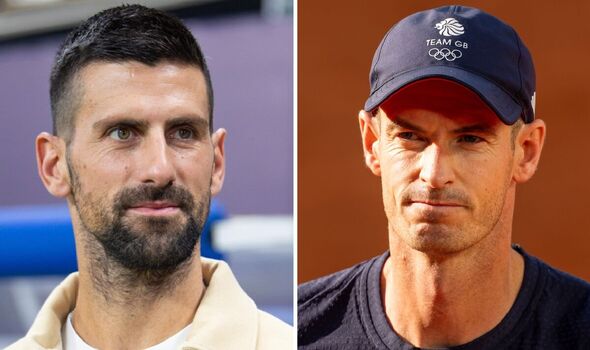
Grapevine: Missing ministers
November 6, 2014
Festival salutes the literate cinema of James Ivory
November 8, 2014If Landon Donovan’s mother had listened to her fears instead of her young son, the greatest U.S. soccer player of all time might never have stepped on a field.
“I was on the side thinking, ‘Oh, I don’t want him to have hurt feelings. He’s the youngest one,'” worried Donna Kenney-Cash, then a single mother of three living in Ontario. But her 5-year-old continued to beg, so she helped him pull on a pair of plastic thrift-store cleats and a jersey that hung down to his knees before sending him off to play against kids nearly twice as old.
When the boy headed toward the goal for the first time, his mother ran up the sidelines behind him, offering both protection and encouragement — neither of which he needed.
“He just put it in” the net, Kenney-Cash remembers. “And then he put it in again and again. So I just kind of sat back after a while. ‘Well, I guess he’s not going to get his feelings hurt.'”
Donovan scored seven times that day. And he has hardly slowed since, setting records for goals and assists with both the U.S. national team and in Major League Soccer, including his 10 seasons with the Galaxy.
Ask Kenney-Cash, a 61-year-old retired special education teacher, for her fondest memory, though, and her mind races back to that Saturday in a park nearly 27 years ago. “It feels like it went fast,” she says with a shake of her head.
And soon it will end. Donovan, 32, surprised the soccer world last summer by announcing that he’d retire when the Galaxy’s season concludes, something that could happen Sunday at StubHub Center if the Galaxy loses its MLS playoff series with Real Salt Lake.
SoccerGalaxy faces Salt Lake in MLS playoffs, and payback is NOT on its mindSee all related
Whenever he departs, Donovan will leave behind more than the $8.5 million remaining on his contract and many entries in the record books. He’ll also leave behind a sport that is far more popular then when he entered it, having almost single-handedly dragged soccer from the far edge of America’s sporting landscape into a position of prominence during his transformative 15-year pro career.
“He’s been the face of U.S. Soccer,” says Galaxy President Chris Klein, once Donovan’s roommate with the U.S. national team and now his boss. “You think about Wayne Gretzky and Michael Jordan. These are guys that don’t get replaced. They come along once in a lifetime.
“And with Landon it’s not because of everything he did on the field. It’s the decisions that he made, it’s everything that came along and how he lived out in front of the American soccer public. The thing that resonates with me is his failures.”
If Donovan’s career was defined by success, it nonetheless began with failure. In 1999, at the age of 17, he signed his first professional contract, a six-year deal with German club Bayern Leverkusen. It was a risky move because only a few U.S. players had succeeded in Europe.
Kevin Baxter When the final whistle sounded on Saturday’s Western Conference semifinal with Real Salt Lake, Galaxy goalkeeper Jaime Penedo looked toward the heavens, whispered something, then blessed himself. When the final whistle sounded on Saturday’s Western Conference semifinal with Real Salt Lake, Galaxy goalkeeper Jaime Penedo looked toward the heavens, whispered something, then blessed himself. ( Kevin Baxter ) –>
And the results were disastrous for Donovan too. Unable to adapt to German culture, he grew homesick and spent much of his time in the U.S., training with youth national teams. But if going to Europe was unusual for an American teenage player, coming back was like waving a white flag and admitting you couldn’t play on the world’s biggest soccer stage.
Yet in 2001 Donovan convinced Leverkusen to loan him to the San Jose Earthquakes of fledgling MLS, a league whose future appeared tenuous when it lost $250 million and folded two franchises in its first five seasons.
“He never bought into the whole thing in Europe,” says Bruce Arena, who has coached Donovan for 12 years, first in two World Cups with the U.S. national team and with the Galaxy, which Donovan joined in 2005. “His preference is to be at his comfort level, which is California. He did it his way.”
And by doing it that way, Donovan changed U.S. soccer.
In the fall of 2001, he scored five times in six playoff games, guiding San Jose to its first MLS championship. His popularity helped stabilize a league that has doubled in size since then, with its average attendance jumping by nearly 6,000 a game to a record 19,151.
A year later, as a 20-year-old playing in his first World Cup, Donovan scored the second-half goal that closed out a 2-0 win over Mexico and sent the U.S. on to the tournament quarterfinals for the first time in 72 years.
From 1954 through 1986, the U.S. wasn’t even good enough to qualify for the World Cup. In Donovan’s debut, his squad was one of the best eight teams in the tournament — and American soccer was finally on the map.
“Landon made the decision to help lay the foundation and in many ways take on the burden himself to carry the sport on his shoulders,” MLS Commissioner Don Garber says.
At first,Donovan was far from the ideal poster boy for U.S. soccer.
Kelvin Kuo / Associated Press Margie Banuelos, left, and Nefi Chaua, right, show their support for Galaxy star Landon Donovan before a game against the Seattle Sounders on Oct. 19 at StubHub Center. Margie Banuelos, left, and Nefi Chaua, right, show their support for Galaxy star Landon Donovan before a game against the Seattle Sounders on Oct. 19 at StubHub Center. (Kelvin Kuo / Associated Press) –>
He was immensely talented, and blessed with world-class speed that made him the focus of just about every team he played on. He could also be brash and honest to a fault. And by avoiding cliches and false modesty he became a media favorite.
His brazenness made him popular with fans too. During a training session before an Olympic qualifier with Mexico, Donovan was videotaped urinating on a practice field in Guadalajara. And though the bathrooms were locked, Donovan didn’t use that as an excuse, choosing instead to fan the controversy with comments critical of both the Mexican team and its fans.
“He was kind of a punk,” Klein says.
Donovan agrees. “I wasn’t conscious of the way I was acting, what I was saying,” he says.
That has been brought back into focus by Donovan’s ongoing goodbye tour, during which he has watched video clips from throughout his career. Not all those memories have been pleasant ones.
“I say things in those interviews and I look at myself and I’m like, ‘What are you talking about?'” he says. “Not only are some of the things outrageous, but they’re arrogant, they’re mean, they’re immature. That’s all part of being a kid, to some extent. I wish I would have known more, to act better. It’s taken me a lot of work to come to a place where I’m just a better, well-rounded human being.”
His time in the soccer spotlight also included a well-publicized divorce from his TV star wife Bianca Kajlich (“Rules of Engagement”), years of therapy and a bout with depression that led to a four-month soccer sabbatical in 2013. That break probably cost Donovan a spot on a fourth straight World Cup team.
But aside from his youthful arrogance, Donovan regrets very little. Introspective and sometimes brooding, Donovan grew up in a household where intellect was far more important than athleticism. So he played the violin in grade school and was a straight-A student in high school in Redlands.
“We’re all kind of inward-looking and academic,” his mother says.



Luke Humphries comment about Luke Littler says it all after Players Championship glory
Read more